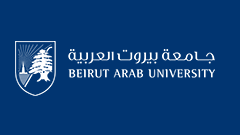Abstract
The term Motherland wasn’t used by the ancient Arab writers and poets, and even if it was mentioned it would mean the house or the residence, as for the concept of the motherland, as identified nowadays, it didn’t exist in the era before Islam or the Middle ages, but it started emerging during the 19th century, when the national sense developed at the Arabs, and they were introduced to this concept by the western culture which invaded all the east.Among the models which the researcher poet “Said Akel” may study, a Lebanese whose thoughts match with those who attempt to build a motherland based upon the Lebanese nationalism, in which the building was a beautifying culture which doesn't relate to the reality at all, neither can change it. The second model is “Ahmad Matar” an Iraqi poet who sensed the failure of the national projects in the contemporary Arab world, in which his poetry was sarcastic and critic in this regards. Therefore, criticizing the belonging based upon the common interests in the social contract held between the citizen and the state without trying to change the cultural structure of the motherland. As for the problematic which this research tries to discuss: the relation between the development of the motherland concept and the sense of the belonging on one hand, and expressing this feeling literature wise and the extent of this literature prevalence in the community on the other hand, and its impact in the community. Through studying the poetry of each of “Said Akel” and’Ahmad Matar”, the researcher must reach a conclusion linking the sense of progress, expressing the foundation, and the feeling of belonging to a motherland is still imaginary, and the sense of humiliation and the loss of the true motherland in the national, after having lost the belonging feeling throughout the failed Arab experiences in building the nations
الملخص: لم يجر مصطلح الوطن على ألسنة الأدباء والشعراء العرب قديمًا، وإن ذُكر فقد كان يعني المنزل أو مكان العيش، أمّا مفهوم الوطن ـ كما هو معروف اليوم ـ فلم يكن موجودًا في الجاهليّة أو في العصور الوسطى، وإنّما بدأ ظهوره خلال القرن التاسع عشر عندما نما الحسّ القومي عند العرب، وعرفوا هذا المفهوم من الثقافة الغربيّة التي بدأت تغزو الشرق برمّته. ومع تطوّر الأحداث السياسيّة والاقتصاديّة في العالم العربي، ومحاولات بناء الأوطان القوميّة على أساس الحدود القطريّة، واستشعار سقوط هذه التجارب لاحقًا، تطوّرت نظرات الشعراء إلى الوطن والانتماء، فجاءت نتاجاتهم الأدبيّة معبّرة عن هذه الأفكار. ومن النماذج التي يمكن أن يدرسها الباحث الشاعر "سعيد عقل" وهو لبناني يتماثل فكره مع الاتجاه الذي كان يحاول أن يبني وطنًا على أساس القوميّة اللبنانيّة، فجاء البناء ثقافة جماليّة لا تمتّ إلى الواقع بصلة، ولا يمكنها أن تغيّره. والنموذج الثاني هو "أحمد مطر" وهو شاعر عراقيّ استشعر إخفاق المشاريع الوطنيّة في العالم العربي المعاصر، فجرى شعره نقدًا تهكّميًّا في هذا الإطار، وبذلك يكون قد نقد الانتماء على أساس المصالح المشتركة في العقد الاجتماعي بين المواطن والدولة دون أن يحاول تغيير البناء الثقافي للوطن. أمّا الإشكاليّة التي يحاول هذا البحث أن يدرسها فهي العلاقة بين تطوّر مفهوم الوطن وتطوّر حس الانتماء من جهة، والتعبير عن هذا الشعور أدبيًّا ومدى انتشار هذا الأدب في المجتمع من جهة أخرى، ومدى تأثيره في المجتمع. ومن خلال دراسة شعر كلّ من "سعيد عقل" و"أحمد مطر" يفترض الباحث أنّه يمكن أن يصل إلى نتيجة تربط بين حس النهوض، والتعبير عن البناء، وتفجّر الشعور بالانتماء إلى وطن ما زال صورة في الخيال، وحس الإذلال وضياع الوطن الحقيقي في وجدان الأمّة بعد أن خسرت شعور الانتماء من خلال التجارب العربيّة الفاشلة في بناء الأوطان.
Keywords
Said Akel, Ahmad Matar, motherland, belonging, سعيد عقل, أحمد مطر, الوطن, الانتماء.
Recommended Citation
Itani, Samir
(2020)
"جدليّة الوطن والانتماء وأثرها في المجتمع بين سعيد عقل وأحمد مطر,"
BAU Journal - Society, Culture and Human Behavior: Vol. 1:
Iss.
2, Article 13.
DOI: https://doi.org/10.54729/2789-8296.1033

